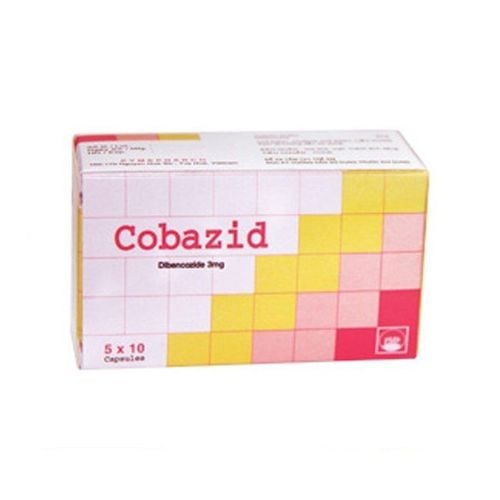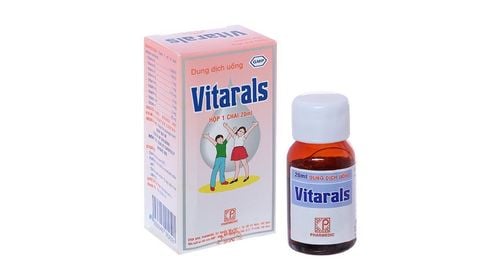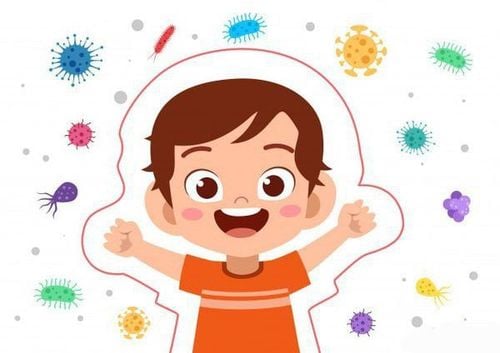This is an automatically translated article.
The article is professionally consulted by Master, Doctor Dang Huy Toan - Pediatrician - Neonatologist - Department of Pediatrics - Neonatology - Vinmec Nha Trang International General HospitalChildren are susceptible to infections, and chronic and persistent infections are often the hallmark of a weakened immune system. When the child's immune system is weakened, the body's protective barrier against pathogens will be significantly affected, making the child's resistance not as good as before.
1. Causes of a weakened immune system in children
The immune system is considered an important defense barrier of the human body against harmful agents such as viruses, parasites or bacteria. A healthy immune system will help the child's body fight off dangerous diseases, and at the same time promote the comprehensive development of the child thanks to the proliferation of T lymphocytes and B lymphocytes.Immunodeficiency in children is associated with many different causes. In general, immunodeficiency in children is divided into 2 main categories, including primary and secondary.
* Primary Immune System Deficiency: Usually occurs because the child's body has genetic defects, impaired function of B and T immune cells, lymphoid germ cell disorders, disorders of the complement system or the phagocytic system. All of these factors are considered to be the main causes of a weakened immune system right from birth. This also makes children more susceptible to infections, viral infections and especially autoimmune diseases.
* Secondary immunodeficiency: Usually occurs in normally healthy children with certain diseases. In addition, secondary immunodeficiency may also be related to glucocorticoid use, X-ray radiation, surgery, or trauma. On the other hand, children with diseases such as diabetes, sickle cell anemia or protein-energy malnutrition can also weaken the immune system, making it difficult to fight pathogens.
In addition to the above causes, immunodeficiency in children can also occur due to other factors such as:
Children are infected with human immunodeficiency virus, leading to acquired immunodeficiency syndrome right ( AIDS ) , including those who have progressed to full-blown AIDS. Children receiving organ transplants. Children with cancer.

Tình trạng suy giảm miễn dịch ở trẻ xảy ra do cơ thể có những khiếm khuyết về mặt di truyền
2. Vaccinations for children with weakened immune systems
If your child has a weakened immune system, your pediatrician may recommend certain vaccines. Sometimes, the doctor may also choose to wait until a child's immune system is stronger before giving these vaccines.Here are some points to keep in mind when giving vaccines to children with weakened immune systems:
For children with weakened immune systems, the doctor may recommend delaying or not using the vaccines. Vaccines contain live viruses to avoid potential health risks to children that may arise from the vaccine. These vaccines will include the chickenpox (varicella), measles-mumps-rubella (MMR) vaccine, and the nasal spray flu vaccine. If a child has cancer and is being treated with chemotherapy, a live virus vaccine can be given 3 months or more after the treatment ends. In general, vaccines containing inactivated bacteria or viruses can be used in children with weakened immune systems. However, the effectiveness of these vaccines can vary from child to child. Your doctor may recommend vaccines that contain inactivated viruses or bacterial components that do not increase the risk of side effects in children with weakened immune systems, including white blood cells. , tetanus and pertussis , hepatitis B , hepatitis A virus , polio , pneumococcal , Haemophilus influenzae type B , meningococcal and inactivated influenza vaccines .

Nếu trẻ có hệ miễn dịch suy giảm, bác sĩ nhi khoa có thể đề nghị tiêm một số loại vắc – xin nhất định
To prevent diseases that babies often get, parents should pay attention to nutrition to improve children's resistance. At the same time, add supporting foods containing lysine, essential micro-minerals and vitamins such as zinc, chromium, selenium, B vitamins,... snacks and less digestive problems.
Parents can learn more:
Why do you need to supplement Lysine for your baby?
The role of zinc - Guidelines for reasonable zinc supplementation
Please visit the website Vinmec.com regularly and update useful information to take care of your baby and family.
References: healthychildren.org, laminkid.com













